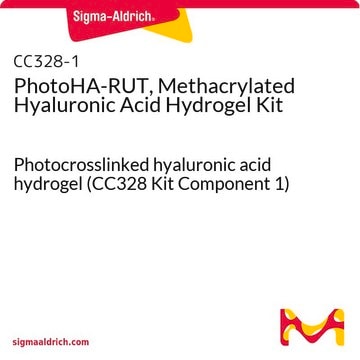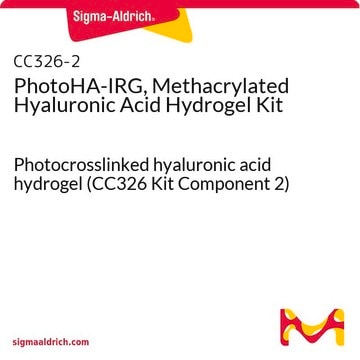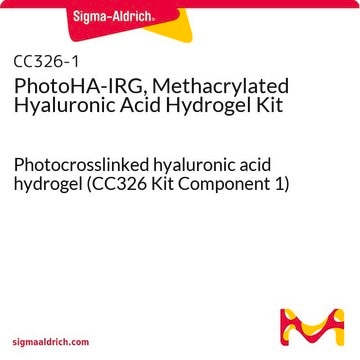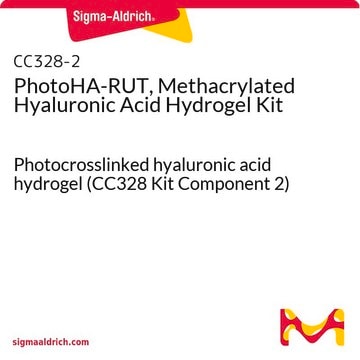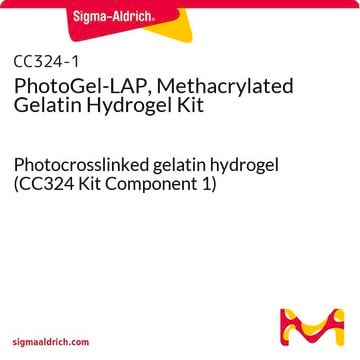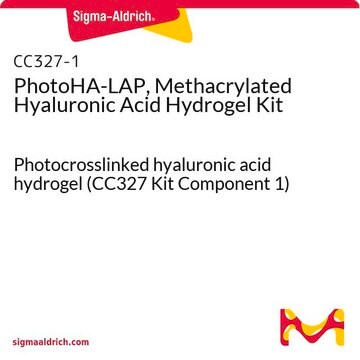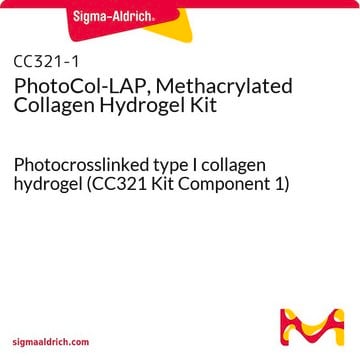CC327-2
PhotoHA-LAP, Methacrylated Hyaluronic Acid Hydrogel Kit
Photocrosslinked hyaluronic acid hydrogel (CC327 Kit Component 2)
Synonyme(s) :
Hyaluronic Acid Scaffold, Methacrylated Hydrogel, Methacrylated Hydrogel Kit
About This Item
Produits recommandés
Forme
lyophilized powder
Application(s)
cell analysis
Description générale
Application
Conditionnement
Composants
Note: The complete PhotoHA-LAP, Methacrylated Hyaluronic Acid Hydrogel Kit (CC327) consists of CC327-1 and CC327-2 sold seperately.
Qualité
Clause de non-responsabilité
Code de la classe de stockage
11 - Combustible Solids
Certificats d'analyse (COA)
Recherchez un Certificats d'analyse (COA) en saisissant le numéro de lot du produit. Les numéros de lot figurent sur l'étiquette du produit après les mots "Lot" ou "Batch".
Déjà en possession de ce produit ?
Retrouvez la documentation relative aux produits que vous avez récemment achetés dans la Bibliothèque de documents.
Articles
Methacrylated hydrogels enable 3D cell culture scaffolds and bioprinting using light crosslinking.
Methacrylated hydrogels enable 3D cell culture scaffolds and bioprinting using light crosslinking.
Methacrylated hydrogels enable 3D cell culture scaffolds and bioprinting using light crosslinking.
Methacrylated hydrogels enable 3D cell culture scaffolds and bioprinting using light crosslinking.
Notre équipe de scientifiques dispose d'une expérience dans tous les secteurs de la recherche, notamment en sciences de la vie, science des matériaux, synthèse chimique, chromatographie, analyse et dans de nombreux autres domaines..
Contacter notre Service technique